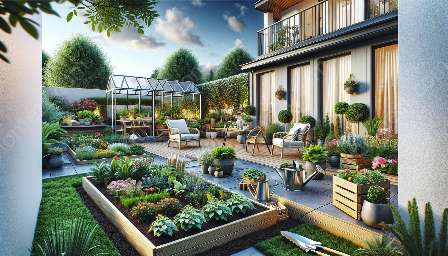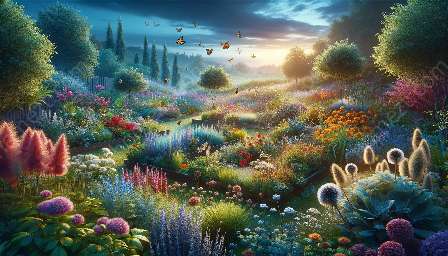Imagine creating a haven for bees, butterflies, and other pollinators right in your own yard or patio. Pollinator gardening not only enhances the beauty of your outdoor space but also plays a crucial role in supporting the ecosystem. By understanding the importance of pollinators and implementing pollinator-friendly gardening practices, you can make a positive impact and enjoy a flourishing, biodiverse garden.
The Benefits of Pollinator Gardening
Pollinators, such as bees, butterflies, and hummingbirds, are essential for the reproduction of many flowering plants. In fact, about 75% of all flowering plants rely on pollinators to transfer pollen from one flower to another, leading to fruit and seed production. By cultivating a pollinator-friendly garden, you can:
- Boost garden productivity: Increased pollination leads to better harvests for your fruits, vegetables, and flowers.
- Support biodiversity: By attracting a variety of pollinators, you contribute to the overall health and diversity of local ecosystems.
- Enjoy natural beauty: Watching butterflies flutter and bees buzz around your garden adds a touch of natural wonder to your outdoor space.
- Contribute to conservation: As pollinator populations face threats, creating pollinator-friendly habitats helps protect these vital species.
Creating a Pollinator-Friendly Garden
To establish a thriving pollinator garden, consider the following key factors:
Plant Selection
Choose a diverse range of flowering plants that provide nectar and pollen throughout the growing season. Opt for native plants whenever possible, as they are well-suited to local pollinators and ecosystems. Popular pollinator-attracting plants include bee balm, milkweed, lavender, and coneflowers.
Habitat Enhancement
Provide shelter and nesting sites for pollinators by incorporating features such as rock piles, dead wood, or bee houses into your garden. Creating diverse habitats supports a wider variety of pollinator species.
Avoidance of Pesticides
Minimize the use of pesticides and herbicides, as these chemicals can harm pollinators. Explore natural pest control methods and prioritize organic gardening practices to protect the well-being of your pollinator guests.
Water Sources
Ensure access to water by including shallow dishes or birdbaths in your garden. Pollinators, especially butterflies, benefit from having a nearby water source for drinking and bathing.
Attracting Pollinators to Your Yard and Patio
Implement the following strategies to make your outdoor spaces irresistible to pollinators:
Colorful Blooms
Choose flowers in a variety of colors, shapes, and sizes to appeal to different pollinator species. Create vibrant displays that provide visual cues for pollinators from a distance.
Continual Bloom
Include plants that bloom at different times to ensure a continuous supply of nectar and pollen throughout the season. By offering a steady food source, you can attract and support pollinators year-round.
Landscaping Considerations
Design your garden with clusters of flowers to make it easier for pollinators to locate and access food sources. Grouping similar plants together can also attract specific types of pollinators with specialized feeding habits.
Education and Outreach
Engage with your community to spread awareness about the importance of pollinators and the steps individuals can take to support them. Encourage others to join in creating pollinator-friendly gardens for a collective impact.
Enhancing Your Gardening Experience
Beyond the ecological benefits, pollinator gardening can enrich your gardening experience in numerous ways:
Observing Natural Behaviors
Gain a deeper appreciation for the natural world by observing the fascinating behaviors of pollinators in your garden. Witnessing their interactions with plants and each other can be a source of joy and wonder.
Cultivating a Diverse Garden
Introducing pollinator-friendly plants adds variety and vibrancy to your garden, creating a visually stunning and dynamic landscape.
Personal Satisfaction
Knowing that your garden provides a safe and welcoming environment for pollinators can bring a sense of fulfillment and accomplishment.
Connecting with Nature
Through the act of pollinator gardening, you connect with the natural world and become a steward for the well-being of vital pollinator species.
By embracing pollinator gardening, you can transform your yard and patio into vibrant sanctuaries that benefit both the environment and your personal gardening endeavors. Witness the magic of pollinators as they bring life and vitality to your outdoor space, enriching your gardening journey in countless ways.



